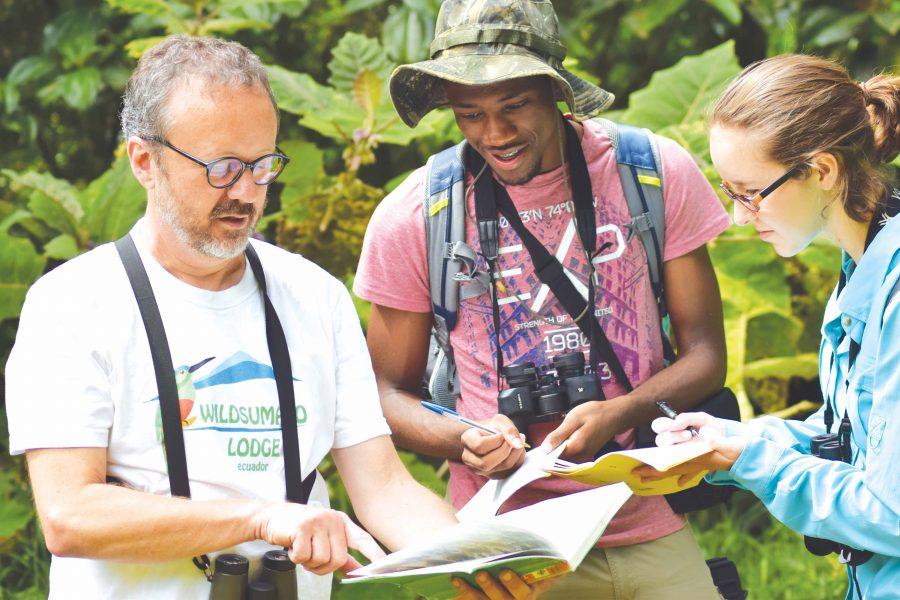Biology class explores Ecuador’s biodiversity
Photo by: Keyla Shepard
Dr. Travis Knowles discusses research with students during the annual trip to Ecuador this summer. Knowles has led a trip to the Wildsumaco Biological Station in Ecuador for the last eight years to help students put into practice the ecological concepts and knowledge they learn in the classroom.
This summer Dr. Travis Knowles, associate professor of biology and director of the Wildsumaco Biological Station, took FMU’s tropical ecology class on a two-week trip to the Wildsumaco Biological Station in Ecuador.
The annual trip was started in December 2008 when Knowles took a group of students enrolled in research credit and began documenting the animal diversity in the area using camera traps for mammals and field surveys for reptiles and amphibians.
While in Ecuador this summer, Knowles provided the students with a chance to practice the tropical ecology concepts and knowledge they learned during the classroom portion of the course. “The benefits to students going on the trip are many, but obviously include getting direct experience in a new environment, and application of classroom knowledge to real world experience,” Knowles said. “This is obviously true from a scientific perspective for our biology majors, but everyone who visits our station also enjoys an amazing cultural and aesthetic experience that they will never forget.”
While many of the students were biology majors, the class and trip were open to all students who had completed biology 106.
“Our course also includes ecological theory and practice in the field, focusing on such questions as, ‘Why are there so many species in the tropics?’ and ‘What are the most important and interesting species interactions in a tropical rain forest?’” Knowles said.
According to Knowles, the end goal for the trip has always been not only educating the students but providing them with an experimental journey.
Aaron Robinson, a junior biology major, said the trip wouldn’t have been possible without a REAL grant that Knowles obtained. “Without that grant the trip wouldn’t have been possible for many of us,” Robinson said. “I didn’t think it would be possible to go, but when I learned that the trip would be sponsored by the REAL grant, I took the chance.”
